-
 Bitcoin
Bitcoin $94,406.3687
-0.29% -
 Ethereum
Ethereum $1,803.1179
-0.91% -
 Tether USDt
Tether USDt $0.9998
-0.03% -
 XRP
XRP $2.1063
-3.18% -
 BNB
BNB $598.2577
1.13% -
 Solana
Solana $144.7364
-1.46% -
 USDC
USDC $0.9999
0.00% -
 Dogecoin
Dogecoin $0.1691
-2.51% -
 Cardano
Cardano $0.6608
-4.04% -
 TRON
TRON $0.2456
-1.64% -
 Sui
Sui $3.3622
-0.69% -
 Chainlink
Chainlink $13.5441
-3.98% -
 Avalanche
Avalanche $19.7641
-1.49% -
 UNUS SED LEO
UNUS SED LEO $8.6673
-4.66% -
 Stellar
Stellar $0.2578
-4.05% -
 Toncoin
Toncoin $3.0066
-1.03% -
 Shiba Inu
Shiba Inu $0.0...01260
-2.44% -
 Hedera
Hedera $0.1741
-2.04% -
 Bitcoin Cash
Bitcoin Cash $359.8459
-0.16% -
 Hyperliquid
Hyperliquid $20.1796
-2.04% -
 Litecoin
Litecoin $82.1957
-6.71% -
 Polkadot
Polkadot $3.8869
-2.48% -
 Dai
Dai $1.0000
0.00% -
 Monero
Monero $282.1348
2.36% -
 Bitget Token
Bitget Token $4.2974
-0.39% -
 Ethena USDe
Ethena USDe $1.0003
-0.01% -
 Pi
Pi $0.5878
-0.34% -
 Pepe
Pepe $0.0...07954
-4.44% -
 Bittensor
Bittensor $369.4736
3.04% -
 Uniswap
Uniswap $4.9153
-3.38%
btc bitcoin wallet app download
When selecting a Bitcoin wallet, consider factors like two-factor authentication, multi-signature support, hierarchical deterministic wallets, cold storage capabilities, and regular security updates to ensure optimal security.
Jan 12, 2025 at 10:22 pm
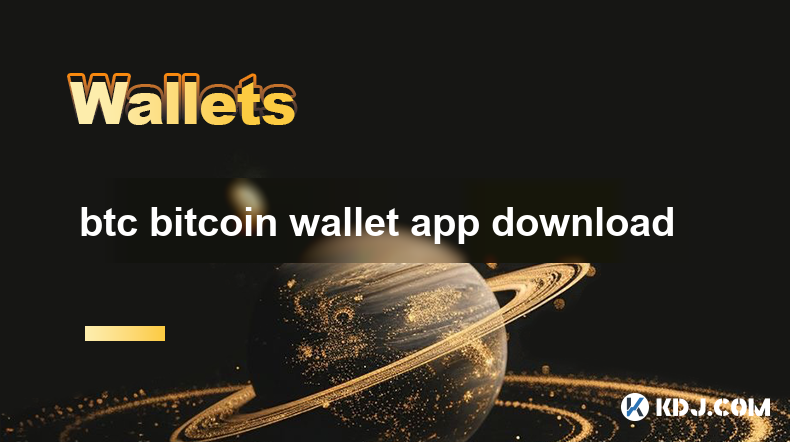
Key Points:
- Security Features to Consider
- Wallet Types and Their Advantages
- Ease of Use and Accessibility
- Reputation and Reliability
- Additional Features and Integrations
Bitcoin Wallet App Download Guide
1. Assess Security Measures
- Two-factor authentication (2FA): Requires additional authentication (e.g., SMS code, hardware token) upon login.
- Multi-signature wallets: Requires multiple private keys (held by different individuals) to authorize transactions.
- Hierarchical deterministic (HD) wallets: Generate multiple addresses from a single seed phrase, enhancing privacy and security.
- Cold storage wallets: Store private keys offline on physical devices like hardware wallets, providing maximum protection against hacks.
- Regular security updates: Developers release frequent updates to patch vulnerabilities and enhance wallet security.
2. Choose a Wallet Type
- Desktop wallets: Installed on personal computers, offering advanced features and customizable security options.
- Mobile wallets: Convenient for accessing and managing funds on smartphones, but may offer fewer security options.
- Web wallets: Accessible through a web browser, with varying levels of custody (some may hold private keys, while others are non-custodial).
- Hardware wallets: Dedicated physical devices designed specifically for storing private keys and managing cryptocurrency transactions.
- Paper wallets: Printed documents containing public and private keys, considered a cold storage option but can be inconvenient to use.
3. Determine Ease of Use and Accessibility
- User interface: Look for an intuitive and user-friendly interface that simplifies wallet navigation and transaction management.
- Platform compatibility: Ensure that the wallet is compatible with your operating system (iOS, Android, Windows, Mac).
- Accessibility: Consider factors such as language support, multiple account management, and ease of recovery in case of lost devices.
- Customer support: Available support channels (email, live chat, phone) and response times can be crucial in resolving any issues promptly.
4. Verify Reputation and Reliability
- Development team: Research the credentials and experience of the team behind the wallet development.
- Open-source software: Open-source wallets allow for public scrutiny and collaboration, often enhancing security and transparency.
- Community support: Active forums, Reddit communities, and dedicated Telegram groups can provide valuable insights and user feedback.
- Audits and certifications: Reputable wallets may undergo independent audits or obtain certifications from third-party organizations.
- Positive user reviews: Read online reviews and testimonials to gauge the general satisfaction and experiences of users.
5. Explore Additional Features and Integrations
- Staking support: Allows users to earn rewards by holding specific cryptocurrencies in their wallets.
- Token swaps: Facilitates the direct exchange of different cryptocurrencies within the wallet.
- Lightning Network integration: Enables fast and cheap microtransactions using Bitcoin's second layer solution.
- NFT storage and management: Provides secure and convenient features for storing and managing non-fungible tokens (NFTs).
- Third-party integrations: Allows users to connect with other services (e.g., exchanges, payment gateways) directly from their wallets.
FAQs
Q: Are all Bitcoin wallets created equal?
A: No, Bitcoin wallets differ in terms of security features, ease of use, compatibility, and additional functionalities. Choose a wallet that aligns with your specific needs and requirements.
Q: How do I keep my Bitcoin wallet secure?
A: Employ strong security measures such as 2FA, use a reputable wallet provider, update your wallet regularly, and consider using cold storage options for enhanced protection against hacks.
Q: Which Bitcoin wallet is the most secure?
A: Hardware wallets are generally considered the most secure option as they store private keys offline, making them less vulnerable to online attacks.
Q: What is the best Bitcoin wallet for beginners?
A: Look for Bitcoin wallets with user-friendly interfaces, extensive documentation, and accessible customer support. Mobile wallets typically offer a convenient and beginner-friendly experience.
Q: How do I recover my Bitcoin wallet if I lose my device?
A: If you're using a multi-signature wallet, you may be able to recover your account using the other signing keys. For non-custodial wallets, seed phrases provide a method for recovering your funds on a new device.
Disclaimer:info@kdj.com
The information provided is not trading advice. kdj.com does not assume any responsibility for any investments made based on the information provided in this article. Cryptocurrencies are highly volatile and it is highly recommended that you invest with caution after thorough research!
If you believe that the content used on this website infringes your copyright, please contact us immediately (info@kdj.com) and we will delete it promptly.
- Alex Mashinsky blasts government's 20-year 'venom-laced' sentence request, declaring it a 'death-in-prison sentence'
- 2025-05-06 14:25:12
- Bitcoin Core developers remove 80-byte limit on OP_RETURN outputs, enabling more data in a more efficient way
- 2025-05-06 14:25:12
- The U.S. Securities and Exchange Commission (SEC)
- 2025-05-06 14:20:12
- Pepeto to Launch on Exchange Following Presale Wrap-Up and Platform Milestones
- 2025-05-06 14:20:12
- SUI Price Stalls Prolonged Downfall Below $95,00 and Bolsters Most Major Altcoins to Resume Bullish Recovery
- 2025-05-06 14:15:12
- VanEck Asks US Regulators to List an Exchange-Traded Fund (ETF) Holding BNB
- 2025-05-06 14:15:12
Related knowledge
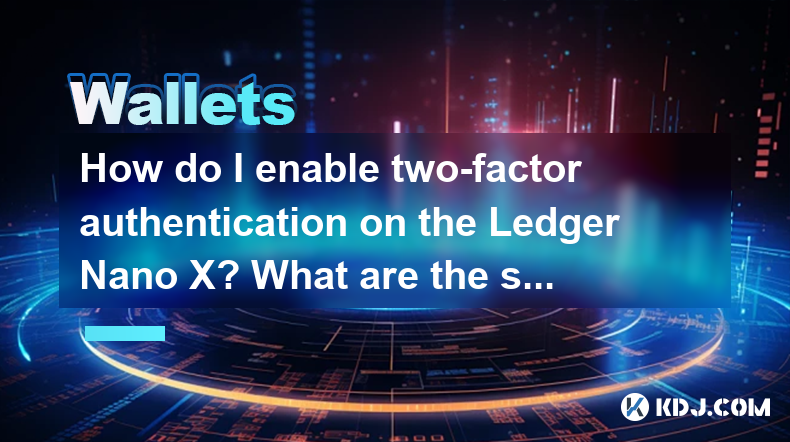
How do I enable two-factor authentication on the Ledger Nano X? What are the security options?
May 02,2025 at 09:49pm
Enabling two-factor authentication (2FA) on your Ledger Nano X is a critical step in securing your cryptocurrency assets. The Ledger Nano X offers robust security options that enhance the protection of your digital wealth. In this article, we will guide you through the process of enabling 2FA on your Ledger Nano X and explore the various security featur...
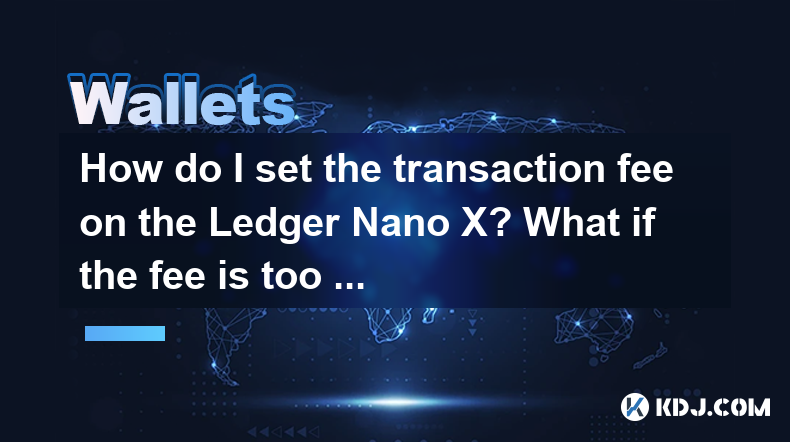
How do I set the transaction fee on the Ledger Nano X? What if the fee is too high?
May 05,2025 at 09:21pm
Setting the transaction fee on your Ledger Nano X is an essential part of managing your cryptocurrency transactions efficiently. The transaction fee directly impacts how quickly your transaction is processed and confirmed on the blockchain. In this guide, we will walk you through the steps to set the transaction fee on your Ledger Nano X, and what to do...

How do I export the Ledger Nano X transaction history? How long can the data be saved?
May 04,2025 at 07:21am
Introduction to Ledger Nano X and Transaction HistoryThe Ledger Nano X is a hardware wallet designed to store your cryptocurrency safely. It supports a wide range of cryptocurrencies and offers robust security features. One of the essential aspects of managing your cryptocurrencies is keeping track of your transaction history. The Ledger Nano X allows y...
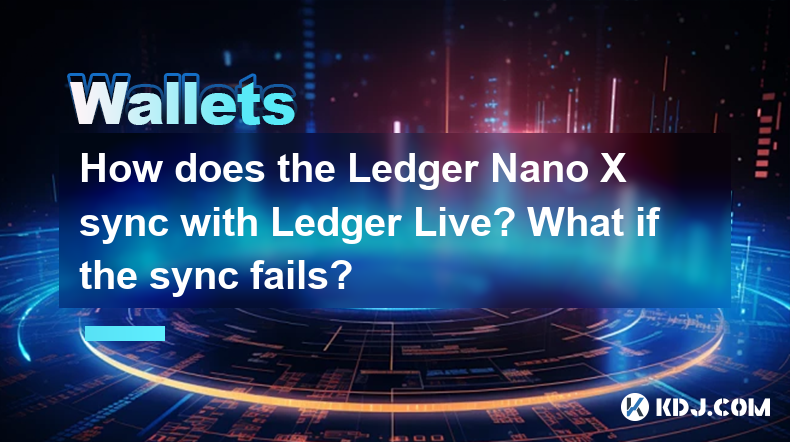
How does the Ledger Nano X sync with Ledger Live? What if the sync fails?
May 04,2025 at 12:07pm
The Ledger Nano X is a popular hardware wallet that allows users to securely manage their cryptocurrency assets. One of the key features of the Ledger Nano X is its ability to sync with the Ledger Live application, which provides a user-friendly interface for managing your crypto portfolio. In this article, we will explore how the Ledger Nano X syncs wi...
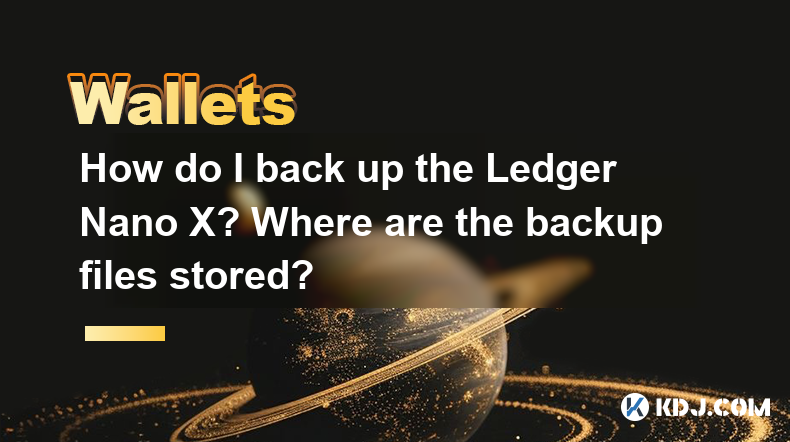
How do I back up the Ledger Nano X? Where are the backup files stored?
May 06,2025 at 09:07am
Introduction to Backing Up Your Ledger Nano XBacking up your Ledger Nano X is crucial for safeguarding your cryptocurrencies. A backup ensures that you can recover your funds if your device is lost, stolen, or damaged. In this article, we will delve into the step-by-step process of backing up your Ledger Nano X, as well as where the backup files are sto...
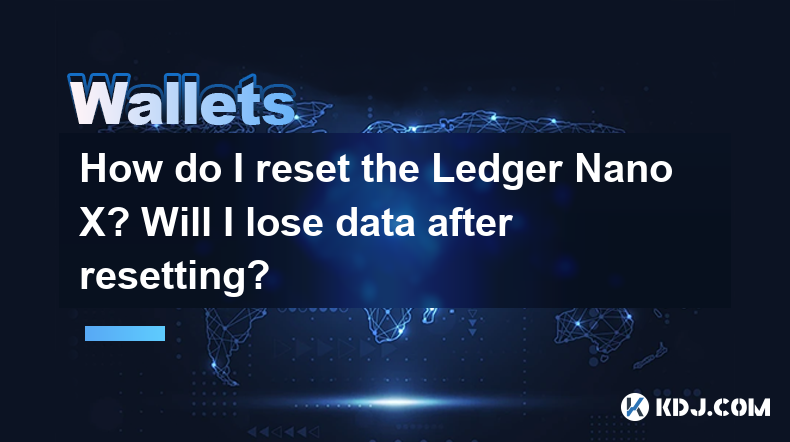
How do I reset the Ledger Nano X? Will I lose data after resetting?
May 06,2025 at 02:35pm
Introduction to Resetting the Ledger Nano XResetting your Ledger Nano X is a process that can be essential for various reasons, such as troubleshooting issues, preparing the device for resale, or starting anew. However, before you proceed with the reset, it's crucial to understand the implications, particularly regarding data loss. This article will gui...

How do I enable two-factor authentication on the Ledger Nano X? What are the security options?
May 02,2025 at 09:49pm
Enabling two-factor authentication (2FA) on your Ledger Nano X is a critical step in securing your cryptocurrency assets. The Ledger Nano X offers robust security options that enhance the protection of your digital wealth. In this article, we will guide you through the process of enabling 2FA on your Ledger Nano X and explore the various security featur...

How do I set the transaction fee on the Ledger Nano X? What if the fee is too high?
May 05,2025 at 09:21pm
Setting the transaction fee on your Ledger Nano X is an essential part of managing your cryptocurrency transactions efficiently. The transaction fee directly impacts how quickly your transaction is processed and confirmed on the blockchain. In this guide, we will walk you through the steps to set the transaction fee on your Ledger Nano X, and what to do...

How do I export the Ledger Nano X transaction history? How long can the data be saved?
May 04,2025 at 07:21am
Introduction to Ledger Nano X and Transaction HistoryThe Ledger Nano X is a hardware wallet designed to store your cryptocurrency safely. It supports a wide range of cryptocurrencies and offers robust security features. One of the essential aspects of managing your cryptocurrencies is keeping track of your transaction history. The Ledger Nano X allows y...

How does the Ledger Nano X sync with Ledger Live? What if the sync fails?
May 04,2025 at 12:07pm
The Ledger Nano X is a popular hardware wallet that allows users to securely manage their cryptocurrency assets. One of the key features of the Ledger Nano X is its ability to sync with the Ledger Live application, which provides a user-friendly interface for managing your crypto portfolio. In this article, we will explore how the Ledger Nano X syncs wi...

How do I back up the Ledger Nano X? Where are the backup files stored?
May 06,2025 at 09:07am
Introduction to Backing Up Your Ledger Nano XBacking up your Ledger Nano X is crucial for safeguarding your cryptocurrencies. A backup ensures that you can recover your funds if your device is lost, stolen, or damaged. In this article, we will delve into the step-by-step process of backing up your Ledger Nano X, as well as where the backup files are sto...

How do I reset the Ledger Nano X? Will I lose data after resetting?
May 06,2025 at 02:35pm
Introduction to Resetting the Ledger Nano XResetting your Ledger Nano X is a process that can be essential for various reasons, such as troubleshooting issues, preparing the device for resale, or starting anew. However, before you proceed with the reset, it's crucial to understand the implications, particularly regarding data loss. This article will gui...
See all articles




















































































